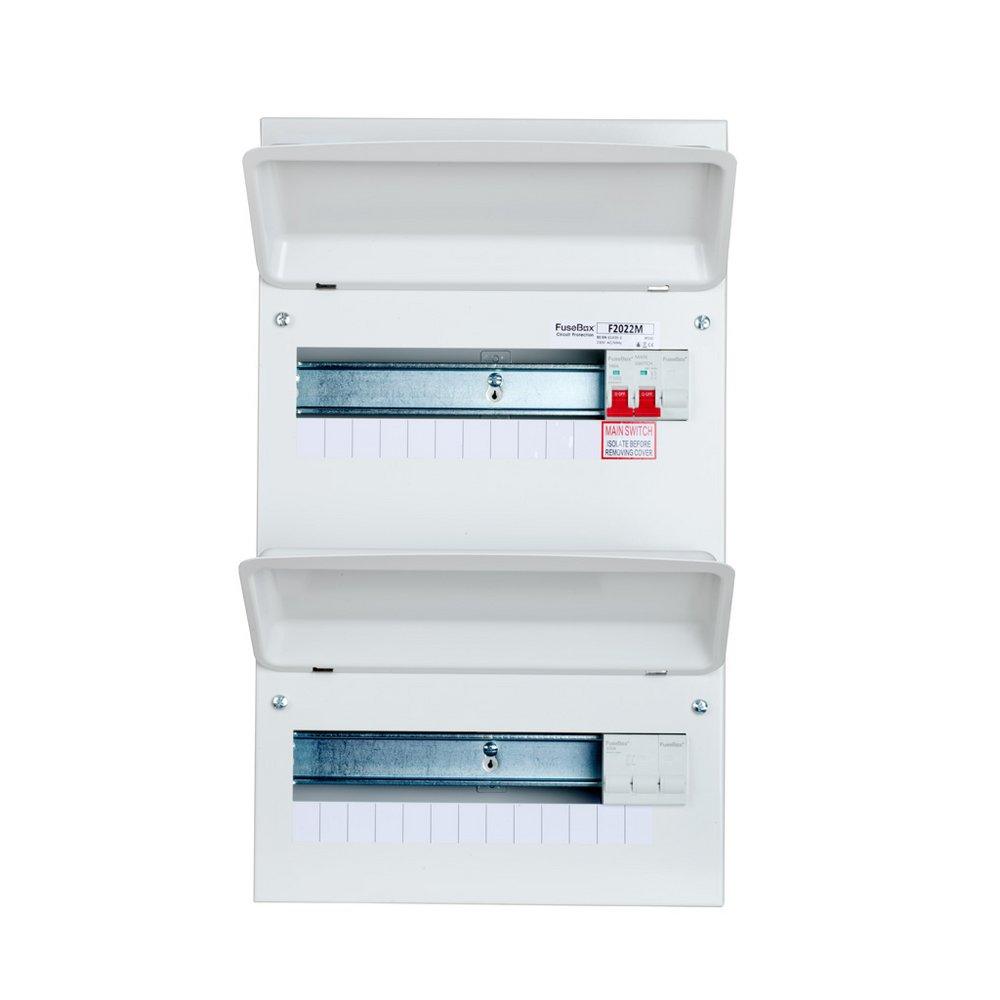The Role of Customer Units in Reliable Energy Monitoring Systems
Customer devices are indispensable to reliable power administration systems, serving as the primary distribution factors for electric power within frameworks. The development of wise technologies has even more enhanced their performance, permitting for real-time information monitoring and nuanced energy intake evaluation.
Comprehending Consumer Units

Recognizing the duty of consumer systems begins with recognizing their essential feature in safeguarding electric systems. By isolating mistakes within specific circuits, customer devices stop extensive failures and prospective fire hazards. This seclusion is accomplished with using breaker that trip or fuses that strike when a fault is discovered, thus removing the electrical flow to the influenced circuit.
Furthermore, customer systems help with the orderly distribution of power, enhancing the effectiveness of energy use. They enable the methodical management of electrical loads, which can be specifically important in industrial and commercial settings where need can vary substantially. Effectively maintained consumer devices add to the longevity of electrical systems and assist in lessening downtime triggered by electric failings, eventually sustaining the smooth procedure of energy-dependent centers.
Smart Technologies Assimilation

An essential benefit of smart consumer systems is their capability to utilize advanced algorithms and artificial intelligence for anticipating analytics. This allows for preemptive modifications based upon use patterns, weather prediction, and various other variables, dramatically boosting total efficiency. Smart customer devices help with need feedback programs, where power usage can be dynamically changed throughout peak durations to stabilize the grid and minimize prices.
The assimilation of eco-friendly energy sources, such as solar and wind, is likewise streamlined via wise consumer systems. By wisely handling the intermittency of these sources, these units make sure a reputable and balanced energy supply. Additionally, clever consumer units enhance user involvement by providing comprehensive insights and remote control capacities through mobile applications, cultivating an extra proactive strategy to energy preservation and sustainability.
Surveillance Energy Usage
Building on the abilities of wise technologies assimilation, checking energy usage comes to be a crucial focus within energy monitoring systems. By leveraging advanced metering framework (AMI), real-time information on power usage can be accumulated at granular levels, giving beneficial insights read this post here right into consumption patterns and peak need periods.
Smart meters and Web of Points (IoT) tools play an essential role in this tracking process. These tools can track energy use in real-time, transmitting data to centralized systems for evaluation.
The combination of these modern technologies not just encourages consumers with thorough information about their energy use however likewise sustains utility carriers in handling tons distribution a lot more effectively. Ultimately, constant and precise tracking is indispensable for achieving power performance, price financial savings, and sustainability objectives within energy administration systems.
Optimizing Home Appliance Usage

One reliable method involves identifying peak and off-peak hours to shift energy-intensive activities, such as washing or dishwashing, to times when power need is lower. This not only decreases pressure on the grid but also maximizes lower energy tariffs. In addition, incorporating artificial intelligence algorithms permits anticipating upkeep, ensuring devices run at ideal effectiveness and lengthening their life-span.
Power management systems can also include user-specific preferences and actions to tailor appliance use routines. Clever lighting systems can readjust brightness based on occupancy and all-natural light accessibility, while HVAC systems can keep comfort degrees without excessive power usage.
Supporting Sustainability
Advertising sustainability within energy administration systems involves not only enhancing effectiveness yet also fostering environmentally accountable techniques. Consumer units are important to this procedure, as they provide real-time data and control systems that allow users to keep an eye on and lower their energy usage. By leveraging advanced technologies, customer units can identify energy-saving opportunities and assist in the assimilation of renewable energy sources like solar and wind power.
One vital facet of advertising sustainability is educating customers on the benefits of liable power usage. With detailed insights offered by consumer devices, users can make educated decisions that lessen their carbon impact. These units can advise optimal times for operating high-energy appliances based on grid need and eco-friendly power accessibility, thereby minimizing reliance on fossil fuels.
In addition, consumer systems support the adoption of smart grid modern technologies, which boost the total performance and dependability of energy circulation. By enabling two-way interaction in between consumers and energy suppliers, these systems can dynamically get used to energy demands, reducing waste and advertising making use of sustainable power techniques.
Final Thought
Customer units, as integral parts of energy administration systems, dramatically improve electrical security and efficiency within buildings via circuit security visit homepage and clever innovation assimilation. Real-time data monitoring and analysis assisted in by these units maximize energy consumption and appliance use. Furthermore, the incorporation of eco-friendly energy sources advertises sustainable techniques, adding to lowered general power consumption and reduced carbon impacts. As a result, customer units play an important role beforehand both power performance and environmental sustainability.
Advances in wise technologies have actually changed the abilities of energy management systems, specifically via the integration of smart customer units.Building on the abilities of wise innovations assimilation, checking power intake comes to be an important focus within power monitoring systems.Reliable device usage optimization is a crucial component of energy administration systems, intending to enhance effectiveness and decrease unnecessary energy consumption.Consumer systems, as integral parts of power management systems, substantially improve electrical safety and performance within structures via circuit defense and wise modern technology combination. Additionally, the incorporation of eco-friendly power resources advertises sustainable practices, contributing to reduced overall energy intake and reduced carbon footprints.